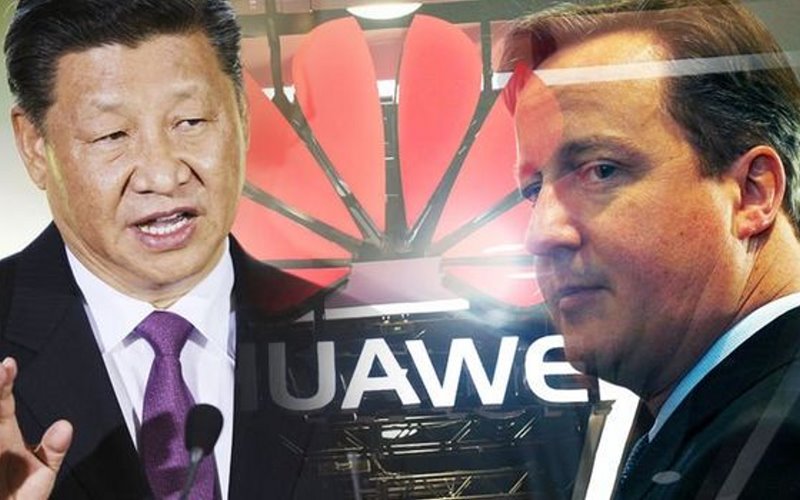The issue of environmental sustainability has increasingly taken centre stage in global political discourse. Nations worldwide are navigating the intricate balance between economic growth and environmental preservation. Within this landscape, the United Kingdom has been progressively emphasizing its commitment to sustainability, albeit with fluctuations and nuanced approaches – writes Colin Stevens.
The appointment of David Cameron, a seasoned political figure known for his prior role as British Prime Minister and his inclinations toward fostering economic ties, particularly with China, raises intriguing prospects and concerns regarding British foreign policy and its environmental stance.
The UK’s Environmental Commitment
Over recent years, the UK has voiced strong commitments to environmental sustainability. Ambitious targets have been set, from carbon neutrality goals to phasing out petrol and diesel vehicles. The government has invested in renewable energy, implemented policies to curb single-use plastics, and championed reforestation efforts.
However, the balancing act between economic growth and ecological responsibility remains a challenge. Trade relations, especially with nations like China, one of the world’s largest economies and emitters of greenhouse gases, present a complex scenario.
David Cameron’s Role and Pro-China Stance
Now David Cameron has been appointed as the Foreign Secretary, his historical pro-China inclinations might introduce a fascinating dynamic to Britain’s foreign policy. Cameron has previously advocated for deepening economic ties with China. While economic collaboration can be beneficial, it might bring forth a conundrum regarding environmental diplomacy.
China, a key player in global supply chains and a significant emitter of greenhouse gases has faced criticism for its environmental practices. A pro-China stance might pose challenges in negotiating agreements that prioritize sustainability over purely economic gains.
David Cameron’s tenure as the UK Prime Minister significantly impacted trade relations with China, notably evidenced in his approach towards technology and the controversial involvement of Huawei in the UK’s 5G infrastructure.
Cameron’s administration was relatively open to Chinese investments and partnerships, exemplified by the initially welcoming stance towards Huawei’s participation in the UK’s 5G network. However, this decision faced intense scrutiny and evolved over time, reflecting the delicate balance Cameron sought between economic interests and national security concerns.
The subsequent reevaluation and restrictions imposed on Huawei’s involvement in critical infrastructure underscored the complex challenges of balancing economic growth with safeguarding national security, shaping a more cautious and nuanced approach to trade with China in the tech sector.
Potential Impacts on Britain’s Environmental Diplomacy
The appointment of David Cameron could influence how Britain navigates international relations concerning environmental sustainability. The balance between economic cooperation and pushing for stringent environmental standards may come to the forefront.
Cameron’s history suggests a pro-trade stance, which could spark debates about whether economic partnerships should take precedence over stringent environmental negotiations.
However, it’s crucial to note that hypothetical scenarios are subject to multiple variables, and actual decisions are contingent on various factors including governmental strategies, international developments, and public opinion.
The intersection of political appointments, foreign policy, and environmental sustainability presents a complex and intriguing landscape for the UK. The appointment of David Cameron as the Foreign Secretary, coupled with his pro-China stance, will certainly likely prompt discussions about how Britain can effectively balance economic growth and environmental responsibility on the global stage.
It remains to be seen how his appointment influences the UK’s foreign policy and environmental agenda. The importance of diplomacy in promoting sustainability amidst economic partnerships will undoubtedly be a pivotal discussion point in the ever-evolving global landscape.
Potential Impacts on EU-China Diplomacy
David Cameron’s tenure as the UK Prime Minister involved efforts to strengthen economic ties with China. He aimed to develop a “golden era” in UK-China relations, emphasizing increased trade and investment. His government sought Chinese investments in UK infrastructure and was relatively open to Chinese businesses operating in the UK.
However, his approach faced criticism on various fronts. Some believed that Cameron’s policies prioritized economic benefits over human rights concerns in China. Also, there were concerns about national security, particularly regarding Chinese involvement in critical infrastructure projects. The decisions made during his tenure regarding Chinese investments and partnerships have continued to spark debates and scrutiny, impacting the overall perception of his role in UK-China relations.
Ultimately, opinions on Cameron’s impact on the West’s relations with China vary. Some see his efforts as beneficial for economic growth and diplomatic ties, while others criticize the prioritization of economic interests over issues like human rights and national security.




















